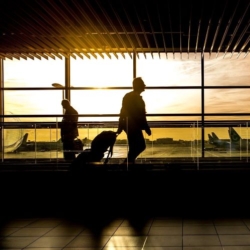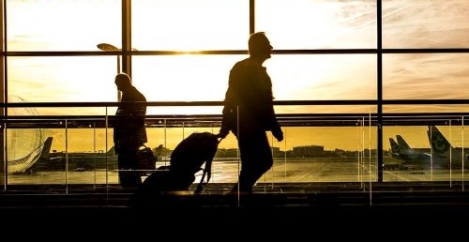June 17, 2020
Research predicts decline in business travel post-lockdown
 Environmental concerns and the changing work landscape could lead to a noticeable drop in both domestic and international business travel, as nearly half of UK workers (48 percent) are concerned about its negative environmental impact, according to new research from O2.
Environmental concerns and the changing work landscape could lead to a noticeable drop in both domestic and international business travel, as nearly half of UK workers (48 percent) are concerned about its negative environmental impact, according to new research from O2.
Research from O2 Business, in partnership with ICM, YouGov and Cenex, also suggests that over a third (39 percent) of UK workers actively want to scale back non-essential business travel, forcing businesses to reconsider the future of work-related travel in a post-lockdown world.
O2 Business claims that if the number of UK domestic business trips (excluding air travel) taken by full-time workers reduced by just 10 percent, a megatonne of greenhouse gas emissions will be avoided from the atmosphere every year – the equivalent of all home, business and road transport emissions in the London Borough of Bromley.
The research is published as the nation adjusts to new working patterns that have emerged as a result of the COVID-19 pandemic. This crisis has simply accelerated existing trends for flexible working, and placed greater demands on business to change. UK businesses have had to pivot fast and embrace new technologies – enabling meetings to take place online in the absence of commuting and business travel.
[perfectpullquote align=”right” bordertop=”false” cite=”” link=”” color=”” class=”” size=””]”It has become increasingly clear that many businesses can operate without the need for continuous, and often unnecessary travel”[/perfectpullquote]
Katy Liddell, Director of Business Sales & Service at O2, said: “For all the obvious negatives, lockdown has confirmed that with the right technology in place, flexible working works. Connectivity should be at the heart of our economy as we rebuild from the pandemic – keeping businesses connected and helping to reduce our negative impact on the environment.”
It is a stark comparison to working life pre-lockdown, when many UK workers spent time travelling for business – nearly a fifth took a trip at least once a week, and one in ten travelled abroad at least every month. That’s in addition to the commute, which averaged 31 minutes each way, according to the study.
The research also suggests that nearly half (46 percent) of UK workers are concerned about the environmental impact of travelling to and from work – which increases to over 50 percent amongst Gen Y and Gen Z workers.
If full-time UK workers (who are able to work remotely) work from home for just one day per week, there would be a reduction of 1,526 miles travelled each year and £449.70 of annual savings per person, resulting in an annual 7.1 megatonne CO2e decrease of greenhouse gas emissions. Going even further, if these UK workers choose to work from home twice a week, there would be an annual 14.3 megatonne CO2e decrease in emissions – more than the total emissions for Northern Ireland.
Keith Budden, Head of Business Development at Cenex said: “Transport accounts for just over a quarter (26 percent) of UK emissions. The most effective way that our nation can lower the production of these harmful emissions is to reduce carbon intensive travel, and our calculations have shown the massive environmental and economic benefits of reducing business journeys. This isn’t to say that business travel should and could be eliminated entirely – there just needs to be a better balance. When business travel is required, it is important to do so in the most environmentally friendly way; using trains, public transport and electric cars. Now is the time for UK business to listen and take action.
Not only are UK workers conscious about the environmental impact of business travel and commuting, the research claims that over three quarters (77 percent) think it is very important that a business is environmentally conscious when they are considering a new role. This figure rises to 82 percent of the Gen Z workforce, demonstrating how UK businesses which prioritise and care for the environment are more likely to attract the next generation of talent.













